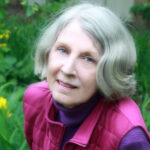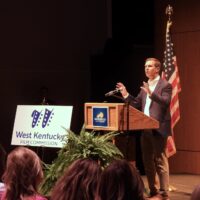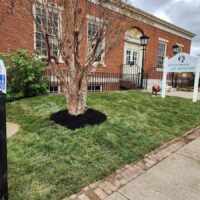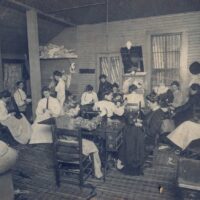Until Rahul Mehta’s “Feeding the Ghosts,” I — a night owl — clung to a lifelong aversion to morning people and their “Early bird catches the worm” philosophy. Reading the poems in this stunning collection, however, has persuaded me, like Mehta, to seek sustenance in the dawning day.
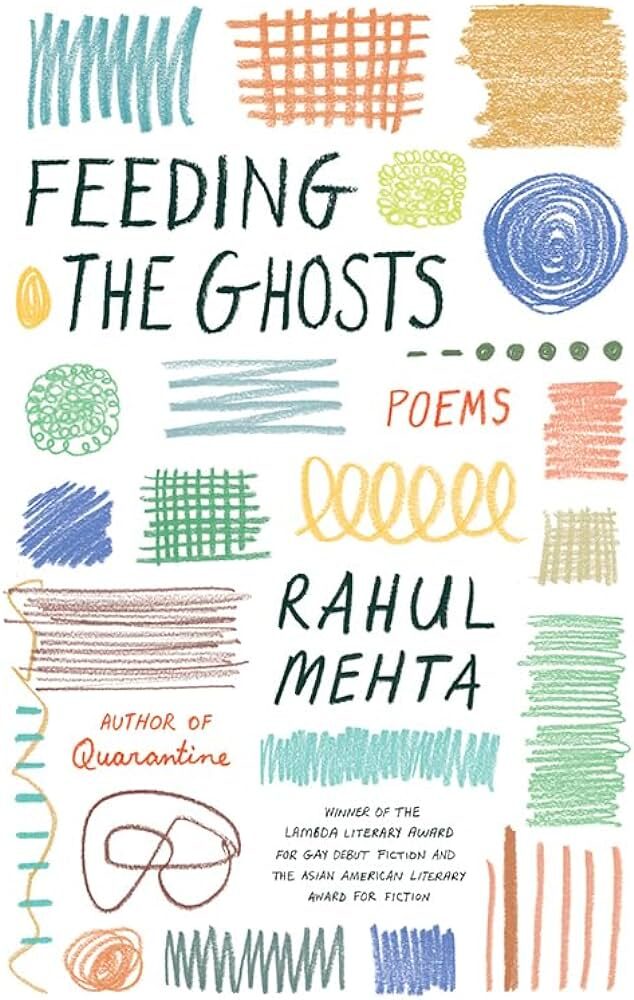
Published by University Press of Kentucky just in time for National Poetry Month, “Feeding the Ghosts” encourages readers to open their eyes to each new day. For Mehta, something in nature usually captures their imagination and catapults into other connections that delve into South Asian and Appalachian cultures, Mehta’s Queerness, and relationships between past and present, self and others.
In the evocative poem “Seeds,” for example, Mehta recalled a visit to their parents in West Virginia, “just days after the white president of the United States told four congresswomen of color to go back to where they came from.”
The morning described in “Seeds,” begins with an array of birds, foraging squirrels, and a chipmunk clustered around a backyard feeder.
“We do our best to name what we see,” the poet muses, “but this has never been my strength.”
Mehta’s mother knows what lures the animals to the feeder. “Sunflower seeds. It’s all about the seeds,” she says.
From there, Mehta reflected on nature’s mini-feeding frenzy the day before while struggling to make dal from a recipe in a book by a second-generation Indian American. Also second generation, Mehta and their mother bridge the gap between the cultures as they cook together, switching roles between translator and tour guide, expert and novice.
Mehta’s mother learned to cook from her own mother and grandmother, while her son relied on a book. When the recipe called for ghee, a type of clarified butter, and none was available, Mehta’s mother insisted, “a little canola oil is just fine.”
When the neophyte chef looked for a strainer to drain the water, Mother advised, “Use your fingers — you are Indian, that’s how Indians do it.”
“I am Indian-ish,” her son replied.
The next day, Mother and her friends took a morning walk in a nearby park. After she described the perambulations to her son, they did not reveal that the very same park was “a cruising spot for gay sex.”
When the visit with the parents ended, the poet and their partner drove back from West Virginia to Philadelphia. Reading a local paper, they read that “the KKK has marched through a nearby town,” leaving “white supremacist pamphlets affixed to small bags of birdseed.”
Interviewed about the leavings, a local official was interviewed and said it wasn’t a hate crime, ”it was a littering issue,” sparking Mehta’s remark, “I want to know what they do with those seeds.”
And so do I.
Motivated by Mehta, I have begun my own morning ritual of finding beauty. “Messy beauty. Ugly beauty. This-is-my-truth beauty. Find it. Find it all,” the poet advises.
Rahul Mehta is author of the novel “No Other World” and a short story collection, “Quarantine.” Their work has appeared in numerous publications and has received a Lambda Literary Award and an Asian American Literary Award. Born and raised in West Virginia in a Gujarati-American household, they teach creative writing in Philadelphia, where they live with their partner and their dog.
Constance Alexander is a columnist, award-winning poet and playwright, and President of INTEXCommunications in Murray. She is a board member for Hoptown Chronicle.
